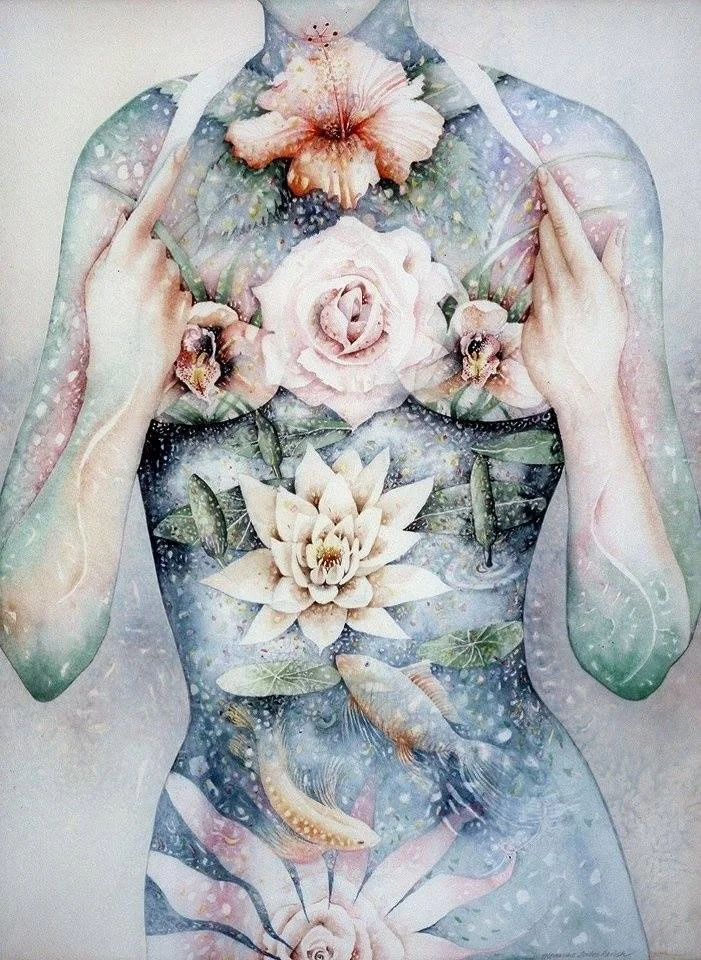Edges we all have them. Some whisper slowly and some flatten us in a moment. A few years ago, a friend said to me, you meet your edges with grace. At the time I must admit I was perplexed by the comment. Mainly because like many people, when I hit my limits and edges I struggle. Edges arrive in many forms, a conversation that stirs something deeply uncomfortable, a season of uncertainty, a devastating illness or a body that whispers enough. So I have been reflecting on this comment this year and I thought I would write about it.
I used to think edges were something to overcome. Now I see them as initiations, thresholds where life invites me to grow a new layer of being. I view them as portals not problems. I have come to understand that every edge , whether burnout, grief, conflict, or uncertainty, is a threshold moment. I don’t try to cross it quickly. I tend the threshold until my whole being is ready to step through. I take my time (where I can), and on the other side, I always emerge with a new layer of wisdom that I quietly weave back into my life, my relationships and my work.
I have always viewed my edges and limits from a perspective of curiousity not control. When something feels uncomfortable, in my body, a relationship, or a system, my first instinct isn’t to fix it. I listen to it with my five senses. I try and get close enough to sense what wisdom it’s carrying. Through years of embodiment and somatic practice, I have trained my nervous system to stay present with discomfort until it reveals the deeper pattern beneath it. This has not been easy, it is very hard work.
Connecting with my body has taught me when to rest, when to deepen and when to let go and shed. There is regenerative intelligence in going slower, what looks like retreat can often be fertile integration. My Winter season has taught me to trust the stillness. Spring, to let new growth emerge without forcing it. The tides, always the tides, to remind me that contraction and expansion belong to the same dance.
I’ve discovered that when I meet an edge, the first thing that matters is slowing down. My mind wants to sprint ahead, but my body asks for stillness. If I can pause long enough to feel what’s happening underneath the surface, the contraction, the ache, the flicker of fear, something shifts. The edge becomes less like a wall, and more like a doorway.
Meeting my edges has taught me that they reveal what’s ready to be integrated. They show me the places I’ve outgrown my old ways of being. They ask for tenderness, not toughness. Sometimes the most courageous act is to soften, to stay present, to breathe until my system remembers that it’s safe to expand again. I don’t do this on my own, I ask for help to hold the container so my body can do what it needs to do.
I have come to understand that meeting your edges in relationship is so much easier than doing it on your own. Healing and growth happen in relationship. I don’t isolate when I reach a threshold, I lean into a trusted circle, my friends, my health providers, my husband, or nature itself as co-regulators. I have learned that building a circle of support around you is one of the most constructive things you can do to live well. I allow others to witness me in the process, those people I have secure connection with are the most supportive to my nervous system. There is something about being seen that can turn fear into belonging.
I definitely meet my edges somatically, not conceptually. Well to be fair, I might start reading about something that is coming up just to get more context and understanding, but I know that path through, is through the body. I’ve come to learn how to locate tension, grief, or fear in my body and to feel it as sensation rather than make it a story. Because our body records every experience of our lives and that tension or emotion is my body’s story. I let my body lead the dialogue: sometimes through stillness, sometimes through tears, sometimes through movement or sometimes just be being in nature. Those edges of mine then becomes a living conversation between my nervous system and my consciousness.
I try to meet my edges in rhythm with nature. There is something incredibly healing about learning about our inner seasons, that brings us back into right relationship with our internal rhythms. I don’t push for transformation, I let it compost. I have noticed both within myself and with my clients, that going slow is more effective, nuanced and has more depth than pushing fast.
Connecting with my body has taught me when to rest, when to deepen and when to let go and shed. There is regenerative intelligence in going slower, what looks like retreat can often be fertile integration. My Winter season has taught me to trust the stillness. Spring, to let new growth emerge without forcing it. The tides, always the tides, to remind me that contraction and expansion belong to the same dance.
Perhaps most of all, I’ve learned that every edge is a form of love, life calling me deeper into myself,
asking if I’m willing to be even more fully alive.
What edge is alive for you right now? Take a moment to feel it in your body.
What might it be inviting you to see, soften, or grow into?
Edges are not walls, they are doorways. Today, notice one edge you’re facing.
Slow down, breathe, and feel what wisdom it might hold if you pause long enough to meet it.





